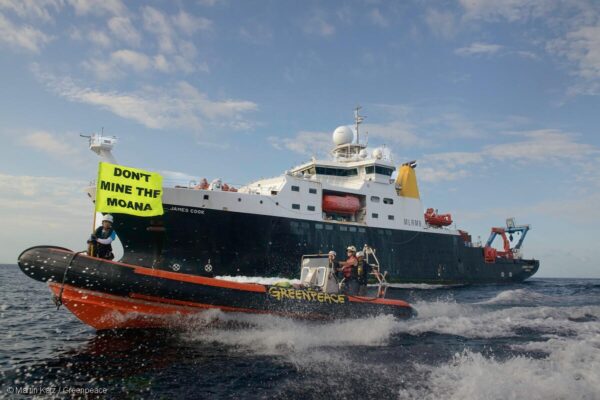Loke Marine Minerals (Loke) has announced the acquisition of deep-sea mineral business UK Seabed Resources (UKSR) from Lockheed Martin UK. UKSR holds a 100% interest in two deep sea mineral licences located in the Clarion-Clipperton Zone (CCZ) in the Pacific Ocean, sponsored by the United Kingdom. The licences are issued by the International Seabed Authority (ISA).
As activists accuse the ISA leadership of pushing ocean mining without due diligence, Lockheed Martin is exiting the industry. US defence giant Lockheed Martin Corp. has to date been the biggest corporate player in deep sea mining.
ISA meeting
As stakeholders gather at the ISA in Kingston, Jamaica, to try to reach a consensus over regulation, a debate is growing between those who say rules are needed urgently as demand for the minerals grows, while opponents argue the rush to open the seafloor in international waters could be a damaging decision that’s impossible to reverse.
From March 21 to April 1 2023, the International Seabed Authority is meeting. Formed in 1996, the ISA has 168 countries as members and issues rules that govern 54% of the world’s oceans. It’s charged with managing mineral resources in the floor of the ocean “for the benefit of humankind as a whole,” and “has the mandate to ensure the effective protection of the marine environment from harmful effects that may arise from deep-seabed-related activities,” the organisation says on its website.
The ISA has granted approvals for 22 contractors to explore metals in the deep seabed, and 19 of these exploration applications are for polymetallic nodules in the CCZ.
NGO reactions
A new report published by Fauna and Flora International (FFI) reveals risks associated with deep-seabed mining – including, the NGO states, that its negative impacts are likely to be extensive and irreversible. FFI go on to say that ‘once lost, deep-sea biodiversity will be impossible to restore. The research analysed in our report clearly demonstrates that it remains premature for deep-seabed mining to proceed and, in the absence of any suitable, proven impact-avoidance or mitigation techniques, we are calling for it to be avoided entirely.’
FFI have called for a moratorium on deep-seabed mining with, at the very least, ‘a precautionary pause to ensure deep-sea ecosystems and potential mining impacts can be comprehensively studied, until such time as exploitation technologies and operational practices are able to demonstrate no serious harm to the environment and no net loss of biodiversity.’
Companies, including BMW, Google, Patagonia, Samsung, Volkswagen and Volvo have made a public call for a moratorium on the practice. WWF and Greenpeace worked together to coordinate the call to get businesses to sign on to the moratorium.
Meanwhile, Greenpeace International has challenged a UK Royal Research Vessel as it returned to Costa Rica from a 7-week long expedition to areas of the Pacific Ocean targeted for deep sea mining. The expedition is part of the ‘Smartex’ project. One Greenpeace activist scaled the side of the vessel to unfurl a banner reading “Say No to Deep Sea Mining”, while two Māori activists swam before the Royal Research Ship James Cook, one holding the Māori flag and the other holding a flag reading “Don’t Mine the Moana”
The “Smartex” expedition (Seabed Mining And Resilience To EXperimental Impact), is funded by the UK Natural Environment Research Council. UK Seabed Resources, is a Smartex project partner.
About UK Seabed Resources
UK Seabed Resources (UKSR) in partnership with the UK Department for Business & Trade, holds licences and contracts to explore a total of 133,000 km2 of the Pacific sea floor for polymetallic nodules that contains critical metals primarily intended to source industries such as EV batteries, construction, aerospace, alternative energy and communications industries.
Further information
The above report was compiled from extracts in CNBC, the Observer, Bloomberg, Guardian, Loke, Greenpeace, Reuters, New Zealand Herald and FFI.
